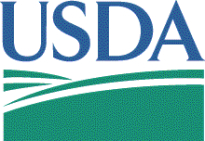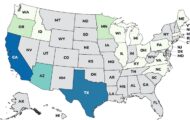New Country of Origin Labels (COOL) went into effect on Saturday. These labels from the U.S. Department of Agriculture (USDA) give consumers more information about where their meat comes from, but not everyone is happy about them.
 In the past, the COOL label on meat from an animal that was born in one country, raised in another and slaughtered in yet another, would read “mixed origin” or something to that effect. That kind of label doesn’t provide consumers with helpful information they can use to make informed choices about their meat purchases. And that’s precisely the kind of information mostAmerican consumers want. According to a 2010 survey by the Consumer Reports National Research Center, 93 percent of those surveyed wanted to country of origin labels on meat.
In the past, the COOL label on meat from an animal that was born in one country, raised in another and slaughtered in yet another, would read “mixed origin” or something to that effect. That kind of label doesn’t provide consumers with helpful information they can use to make informed choices about their meat purchases. And that’s precisely the kind of information mostAmerican consumers want. According to a 2010 survey by the Consumer Reports National Research Center, 93 percent of those surveyed wanted to country of origin labels on meat.
To make these labels more meaningful, agriculture and trade officials in the U.S. have been working, since 2008 on a revised COOL label. The new label eliminates the mysterious “mixed origin” label and replaces it with more specific information listing the country or countries where the animal was born, raised and slaughtered, “born and raised in the U.S., slaughtered in Canada,” for example.
While some including Consumers Union, Food and Water Watch, The Humane Society and the American Grassfeed Association have praised the idea, the labels have been panned by the governments of Canada and Mexico; trade groups including the National Cattlemen’s Beef Association and the American Meat Institute; and producers such as Cragill, Tyson, Smithfield, Kraft and Hormel.
In July, the American Meat Institute (AMI) and eight other organizations representing the meat and livestock industries in the United States, Canada and Mexico filed suit in an effort to overturn the law. The groups said the rule violates the First Amendement by compelling speech. A judge ruled against AMI, which appealed the decision.
Canada and Mexico consider the new COOL labels “discriminatory.” Canadian Agriculture Minister Gerry Ritz has said for months that Canada will take retaliatory actions if the labels were implemented.




